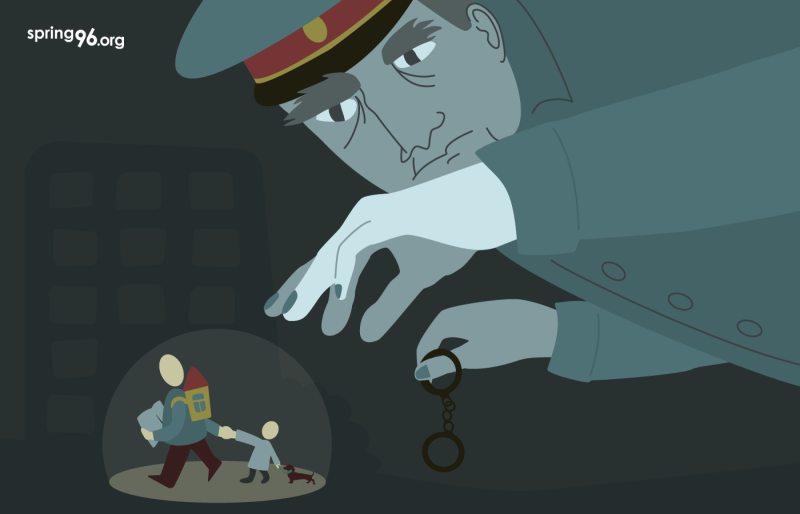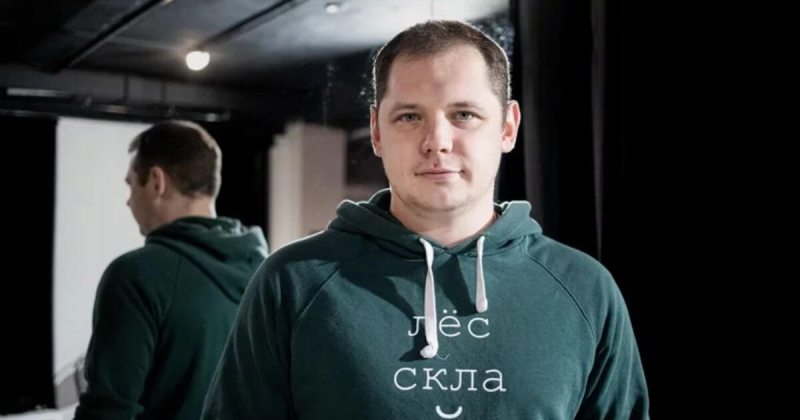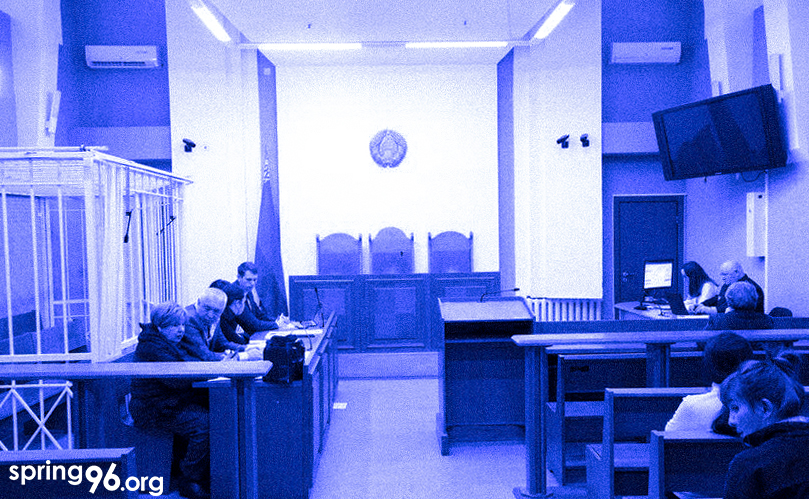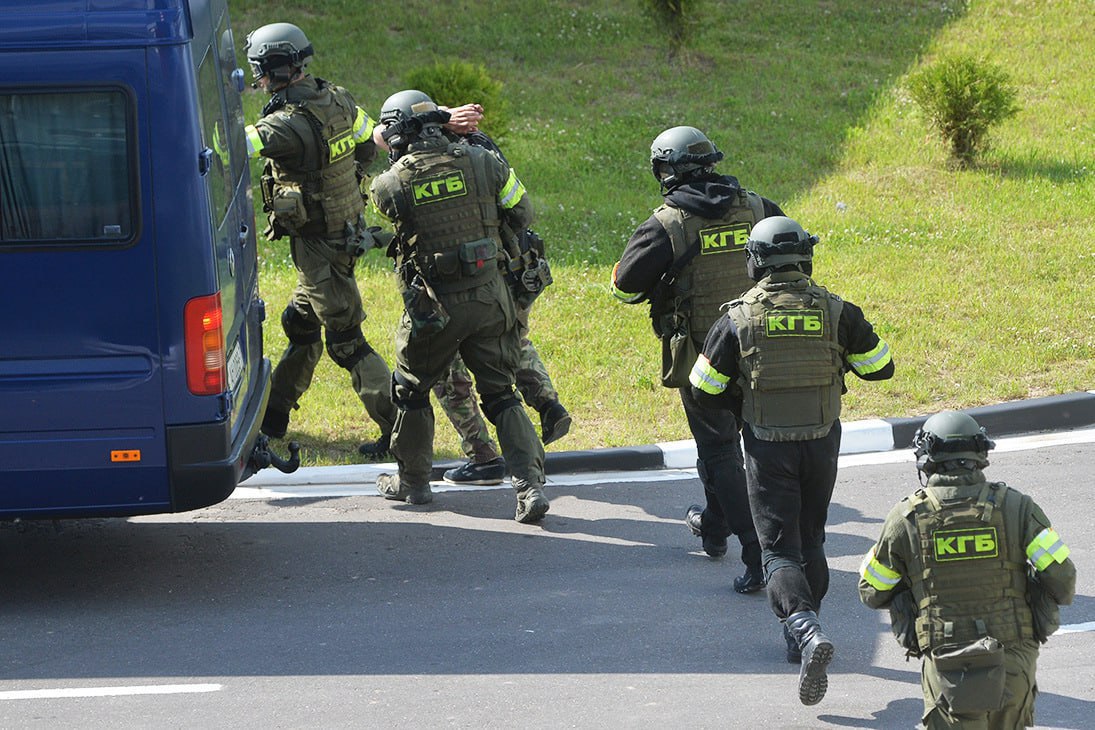"The persecution of Belarusians has spread beyond the borders of Belarus." How the regime harassed people in exile in 2024
There are more than 1300 political prisoners in Belarus today. Before the next elections*, people inside the country are subjected to incredible pressure and harassment: detentions and searches have not stopped for almost five years. Due to political persecution, more and more people are forced to leave their homes and leave Belarus. But this is not enough for the regime. In 2024, forced refugees have been increasingly persecuted: trials in absentia, searches of relatives remaining in Belarus, new threats and restrictions — this is not a complete list of the repressive practices that the authorities use against them.

- Illustration: Viasna volunteer service
The authorities seek to stifle any activity of people abroad and silence them. Today, Viasna reports on that.
Handing over Belarusians
In November 2024, Vietnam handed over to Belarus Vasil Verameichyk, a volunteer of the Kalinoŭski Regiment, who was detained in this Asian country. It is reported that the man ended up in Asia, as Lithuania recognized him as a threat to national security and banned him from entering the European Union. The man was brought to Belarus on the evening of November 14 under the escort of three people. A criminal case was initiated against him under Part 1 of Article 366 (violence or threat against an official performing official duties) of the Criminal Code.

"The political nature of the charges is already obvious." Human rights activist comments on the case of Vasil Verameichyk
We are discussing the case of Vasil Verameichyk with Viasna human rights defender Pavel Sapelka.
Since the beginning of the repression in 2020, there have also been cases of Belarusians being detained in Russia. Thus, the security forces arrested former political prisoner Aliaksei Korshun, as well as political prisoner Yury Kastsiuk, who was beaten during extradition.
Trials in absentia
In 2024, criminal proceedings were initiated against 110 Belarusians who left Belarus due to persecution. For comparison, 17 criminal cases in absentia were initiated in four months of 2022, and 18 in 2023. Investigators place a special emphasis on finding the property of these Belarusians to confiscate it, allegedly as compensation for the damage caused.
There are many trials for participation in peaceful assemblies and "insulting" officials and Lukashenka.
For example, in May, the most massive trial in absentia began in the Minsk City Court. In the case of the Tsikhanouskaya Analysts, 20 people were convicted at once — political scientists, journalists, and sociologists. According to the case file, all of them were accused of committing "crimes of an extremist nature" in connection with the election campaign of Aliaksandr Lukashenka, as well as in the post-electoral period. They were sentenced to a minimum of 11 years of imprisonment each and huge fines.

The case of Sviatlana Tsikhanouskaya's analysts: two hundred six and a half years of imprisonment
The trial took place in the Minsk Regional Court and lasted from May 31 to July 1.
Human rights defenders are also sentenced in absentia. Former political prisoner, lawyer, and human rights defender Leanid Sudalenka was sentenced in absentia in the Homieĺ Regional Court. After his release, Leanid was charged under Parts 1 and 2 of Article 361-4 (assistance to extremist activities) of the Criminal Code and sentenced to five years in a high-security penal colony and a huge fine. Viasna human rights defender Alena Masliukova was sentenced in absentia to three years in a general security penal colony. She is charged under Part 1 and Part 2 of Articles 361-4 of the Criminal Code (assistance to extremist activities), but the essence of the charge is unknown even to the human rights defender.
Let us remind you that Lukashenka signed the law that allows trying Belarusians in absentia in July 2022. This has become a new repressive tool against opponents of the Lukashenka regime and political activists who have left Belarus. It allows investigations to be completed and cases to be brought to court in the absence of the accused. There are practically no opportunities for the accused to participate in such a process. Only each time the Investigative Committee publishes news about the initiation of a case, it urges the defendants to come to their department.
According to Viasna, more than 55 people have been detained upon their return to Belarus since the beginning of 2024, 17 of whom have been prosecuted. However, the figure may be significantly higher due to human rights defenders lacking the complete data.

Special proceedings in Belarus explained
Threats from the security forces
Sometimes Belarusians forced to leave the country receive letters or phone calls from security forces. They offer to "come back and come for questioning," they say that the punishment will not be related to imprisonment, and the recipient will be able to stay at home until the trial. Some are offered to return "to receive administrative punishment and live in peace."
KGB officers wrote and called some Belarusians abroad because the latter had donated to various initiatives. The former offered to return and pay a "ransom." The security forces write to activists who helped political prisoners: they are asked where the activists got money to help political prisoners, and whether they knew those they helped.
Former political prisoners receive calls abroad and also their relatives are visited. People sentenced to restriction of freedom are also asked where they live and required to send a confirmation of their stay abroad.
For example, the Main Directorate for Combating Organized Crime and Corruption (GUBOPiK) threatened blogger Mikita Melkaziorau. GUBOPiK's outrage was caused by Melkaziorau calling the Soviet-era party figure Panteleimon Ponomarenko a "piece of shit."
Pressure on relatives in Belarus
Since the very beginning of 2024, pressure has continued on the relatives of Belarusians who were forced to leave abroad due to political persecution. Thus, in January 2024, there were mass detentions of relatives of political prisoners and former political prisoners throughout the country. On charges of "extremism", the KGB conducted raids, interrogations, and detentions against nearly 300 family members of current and former political prisoners, as well as beneficiaries of the INeedHelpBY initiative. Most of them are mothers and wives of political prisoners, including Maryna Adamovich, the wife of Mikalai Statkevich, Tatsiana Seviarynets, the mother of Pavel Seviarynets, and Darya Losik, the wife of Ihar Losik, who was previously arrested.

"Who helps with care packages?" Details of the mass crackdown by security forces on relatives of political prisoners
After this raid, Iryna Takarchuk, the mother of former political prisoner Volha Takarchuk, was detained. The woman was sentenced to three years in a penal colony.
In the fall of 2024, there was a new wave of persecution. On November 14, KGB officers staged another raid across the country, and relatives of political prisoners were also detained. Many people have been arrested and searched for receiving help. The human rights defenders found out about the third wave of harassment in the winter — people are interrogated and devices and bank cards are confiscated. This is probably also related to getting help.
Sometimes relatives were forced to say what the police officers wanted on camera. In July 2024, such videos were recorded with relatives of the leading Lusterka TikTok accounts. Several additional criminal cases have been initiated against their presenters, with searches and confiscation of property.
In the fall of 2024, security forces visited the mother of Homieĺ resident Mikalai Stahurski: they confiscated the woman's phone and threatened to "detain her for a day."
For example, after the January raid, Aliaksandr Semianiuk, the daughter of political prisoner Alena Hnauk, was forced to leave with her three children.
Persecution for participation in marches abroad
The Investigative Committee has initiated a criminal case against Belarusians who took part in Freedom Day rallies around the world. The agency reported that 104 names had been added to the list of suspects in the case of Belarusians Abroad. They allegedly took part in street actions in Warsaw, Vilnius, Wrocław, Białystok, Brussels, Batumi, Prague, California, Philadelphia, etc. These people are recognized as suspects in the criminal case — they are charged under Articles 361-1 of the Criminal Code (creation of an extremist formation and participation in it) and Articles 369-1 of the Criminal Code (discrediting the Republic of Belarus).
As part of the investigation of the criminal case, security forces discover information about real estate and property in Belarus belonging to these people. Investigative actions are currently underway, including inspections, searches, confiscation of property, and other procedural measures.
Various lists of "undesirables"
The so-called lists of "extremists", "terrorists", and "extremist formations" are updated weekly in Belarus. Belarusians who were forced to emigrate due to political persecution — those who were tried in Belarus or in absentia — constantly get there. Most of the restrictions imposed on people on such lists are related to activities within the country.
Let us remind you that there are almost five thousand people on the list of "extremists", and 1,220 people on the "terrorist" list, among whom more than 500 are Belarusians.
Belarusian organizations are also recognized as "extremist formations" — moreover, the names of persons allegedly related to them are published.
In six months, 773 Belarusian citizens appeared on the Russian wanted list. It includes more than 3,500 people in total. Belarusian human rights activists Natallia Satsunkevich, Leanid Sudalenka, Ihar Kazmerchak, Iryna Tratsiakova, Pavel Levinau, Maryia Tarasenka, Uladzimir Khilmanovich, Zmitser Salauyou, Alena Masliukova, Siarzhuk Sys were added to the database.

Trials, wanted lists, special proceedings. How are human rights defenders persecuted in Belarus?
Criminalization of communication with people abroad
In an environment where a huge number of people have been convicted in absentia, put on "extremist" and "terrorist" lists, and organizations are recognized as "extremist formations," any connection to them is criminalized. It is known that criminal cases are initiated against Belarusians for interviews with media that are recognized as "extremist."
In September 2024, it became known that a criminal case had been initiated for participating in Plan:B TV show on Belsat TV channel. There are more than a dozen people suspected of facilitating extremist activities (Part 2 of Articles 361-4 of the Criminal Code). Investigators came to the relatives of the suspects, inquired about the whereabouts of the show participants, interviewed neighbors, and conducted other procedural actions. Human rights defenders know of several searches.
Ihar Kazmerchak, an Orša human rights defender and the editor of the portal Orsha.eu, became a defendant in the criminal case brought against those who gave interviews to the media included in the list of "extremist formations".
Documents related pressure
Some of the forms of pressure are related to the legislative restrictions that were imposed in 2023. They continued to operate in 2024, making life more difficult for Belarusians abroad. It is still prohibited to obtain passports abroad and to carry out property transactions in Belarus based on a power of attorney issued abroad.
In addition, people who have returned home after living abroad still face detentions.
Pavel Sapelka, a Viasna lawyer, commented on the persecution of Belarusians abroad:
 "The persecution of Belarusians for exercising their civil rights and freedoms, as well as manifestations of state terrorism aimed at intimidating dissidents, opponents of the regime, and even ordinary people has spread beyond the borders of Belarus.
"The persecution of Belarusians for exercising their civil rights and freedoms, as well as manifestations of state terrorism aimed at intimidating dissidents, opponents of the regime, and even ordinary people has spread beyond the borders of Belarus.
In her final report, UN Human Rights Council Special Rapporteur Anaïs Marin noted that measures against citizens moving abroad and their family members, politically motivated harassment, and violations of fair trial guarantees are inadmissible.
Since the summer of 2020, the actions of the Belarusian regime have been a large-scale and systematic attack on the civilian population. Taking this into account, the Government of the Republic of Lithuania, under Articles 13 (A) and 14 of the Rome Statute, on September 30, 2024, referred the situation in the Republic of Belarus to the International Criminal Court for investigation by the Prosecutor's Office of the Court. The government noted that 'as part of this attack, the regime forcibly displaced hundreds of thousands of legal residents of Belarus in neighboring Lithuania and other countries, without grounds permitted by international law. Such a displacement, known as deportation (since it is carried out across the border), occurred through various basic actions/behaviors listed above, including expulsion, other coercive actions, or other related crimes, and was committed for political reasons.
The deportation was the key objective of the Belarusian regime's attack — to get rid of all critics and opponents by any means to strengthen the regime's authoritarian position in power. All the direct perpetrators, their commanders, and superiors were clearly aware of the attack. There are obvious links between expulsions, threats, and other key factors contributing to a coercive environment, and a general attack leading to illegal deportation.' Lawyers believe that collectively these actions constitute crimes against humanity of three different types: (a) illegal deportation, (b) persecution, and (c) other inhumane acts and possibly other related crimes."

















